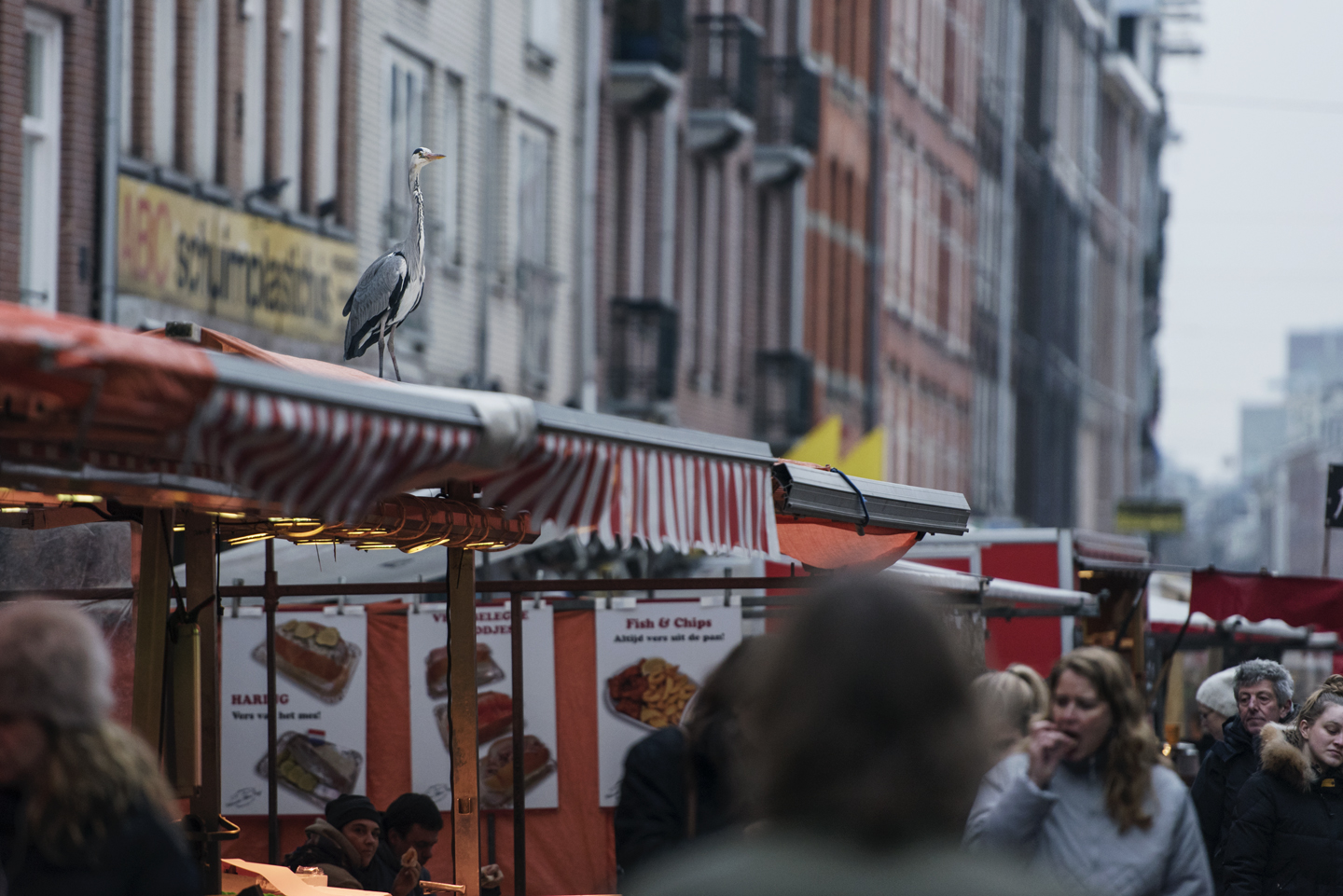
With many canals and rivers, Amsterdam is the perfect city for grey herons
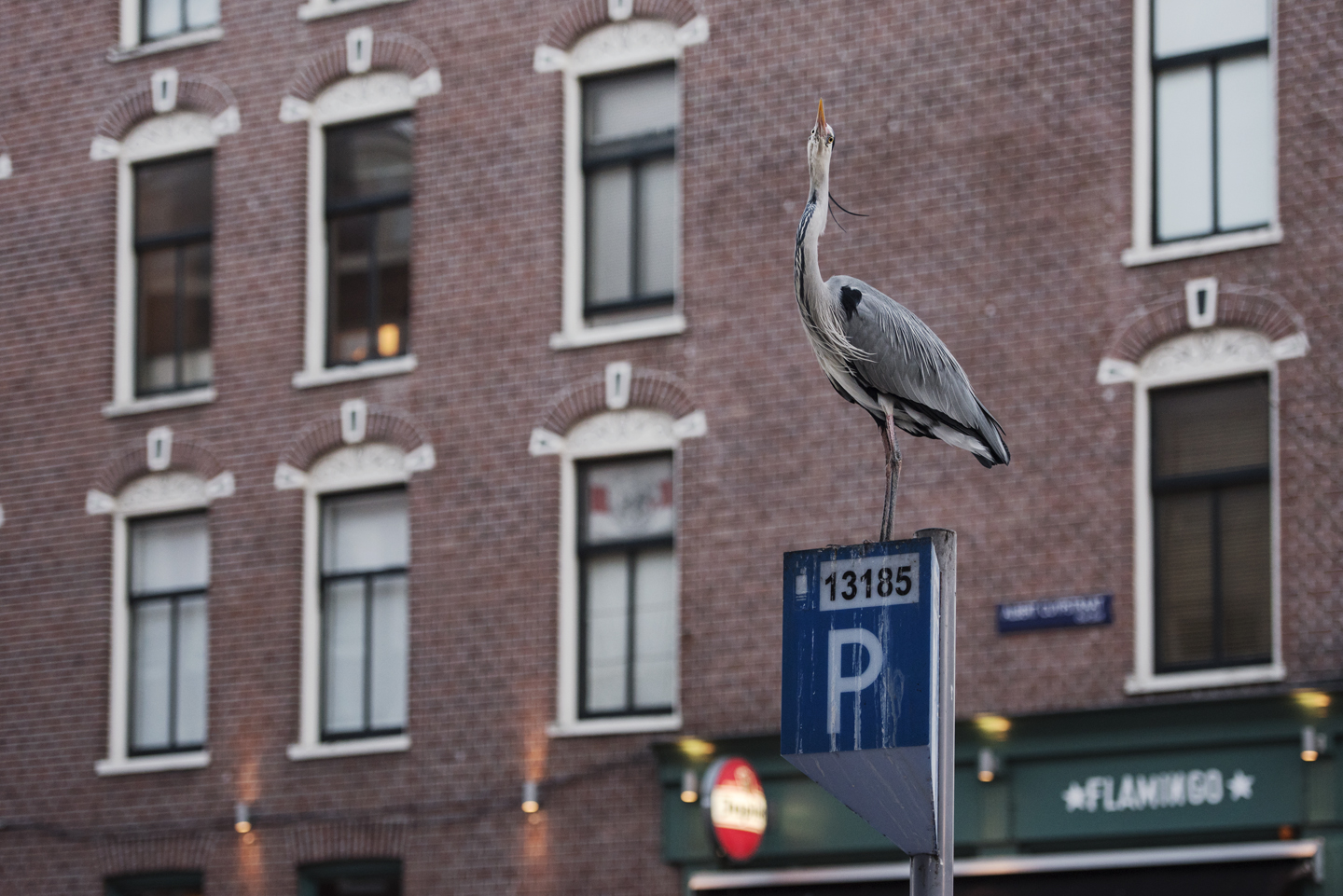
They have long been part of the culture, but in certain neighbourhoods, have also become part of the furniture
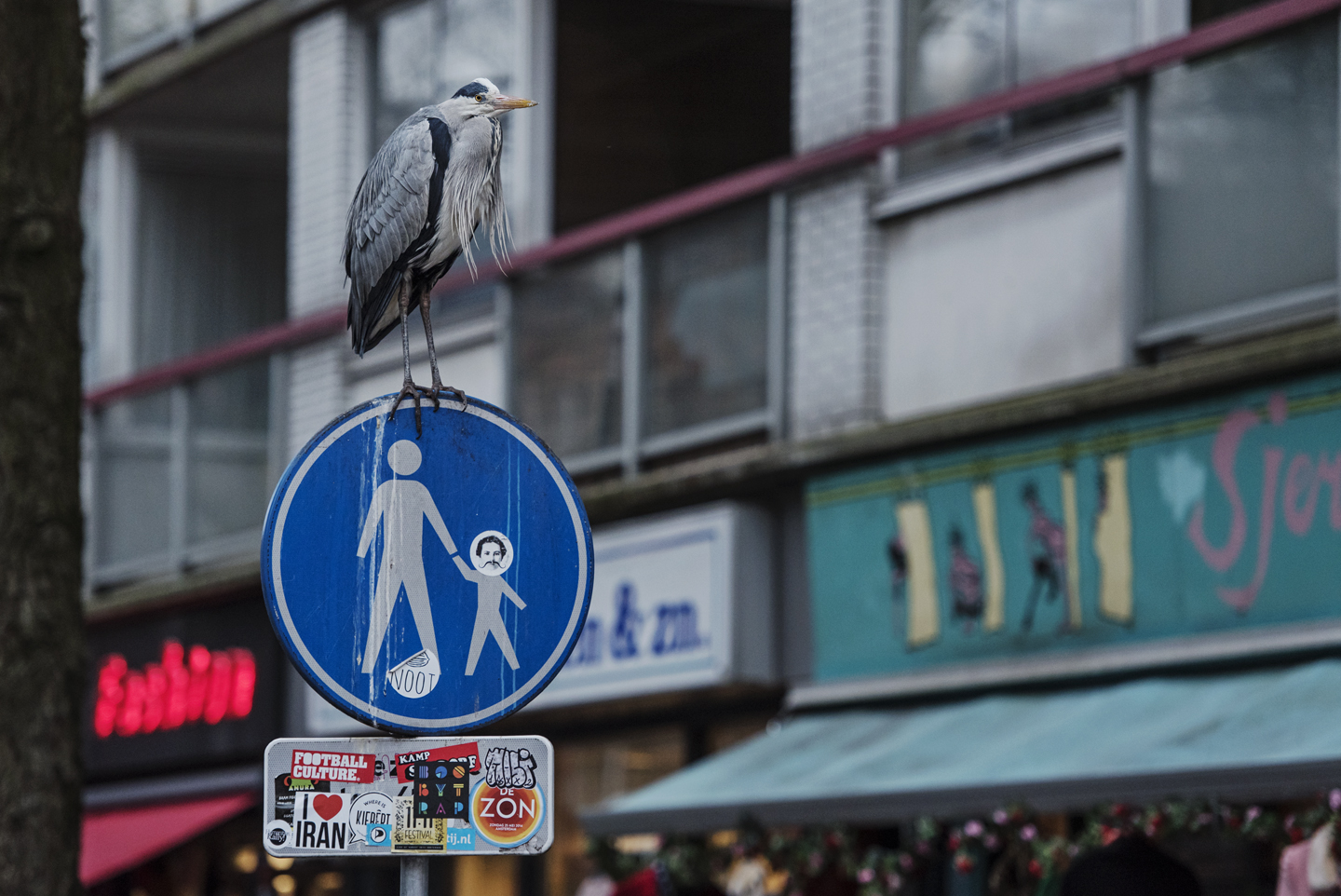
The herons have adapted so well to city life, that they now know all of the best places to sit in wait for a free meal
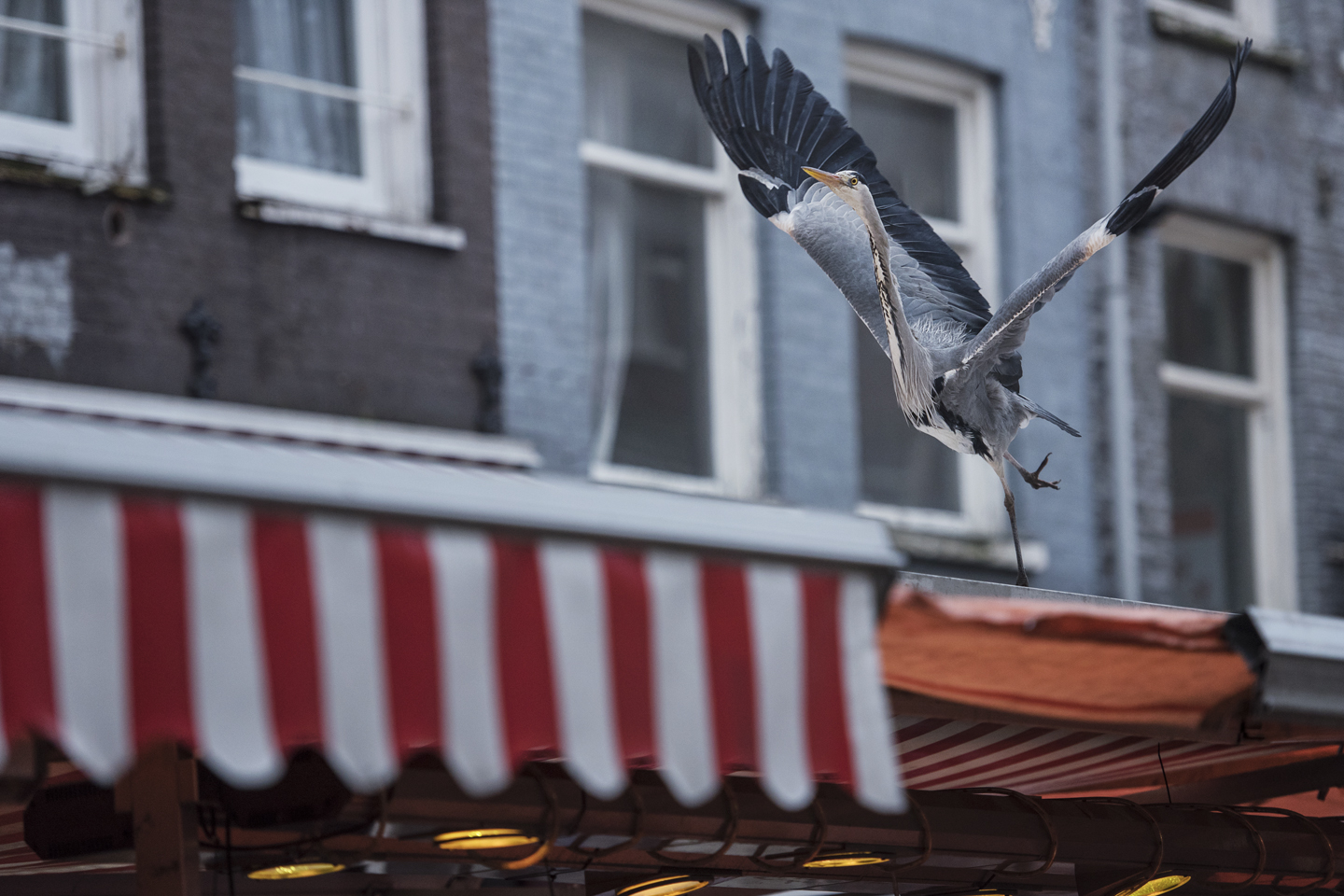
On market day afternoons, small groups congregate at the fish stalls. At first they are flighty, but slowly settle and find their confidence
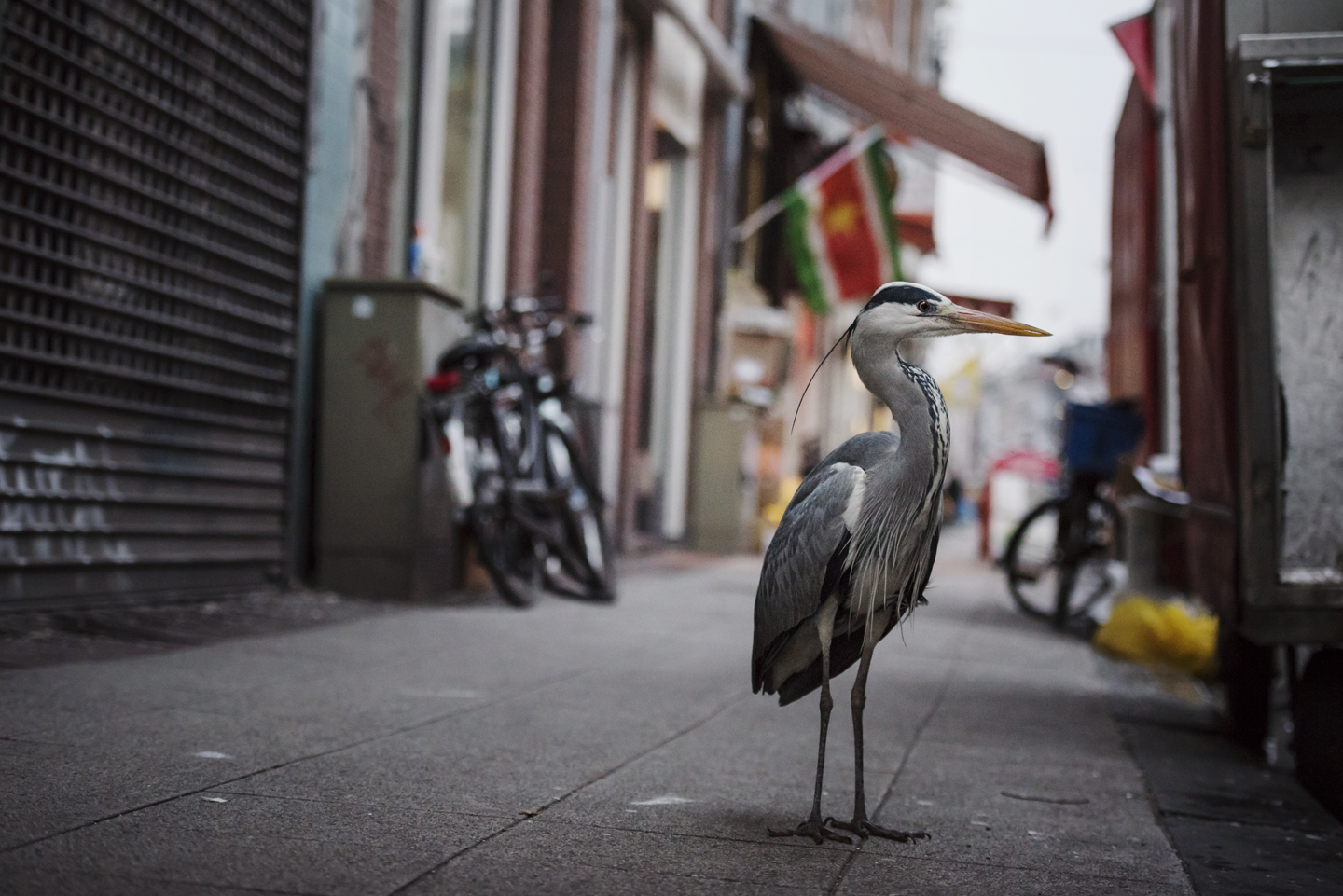
When it's quiet, the boldest will flap down and wait behind the stalls, hoping for a morsel of fish to be washed into the gutter
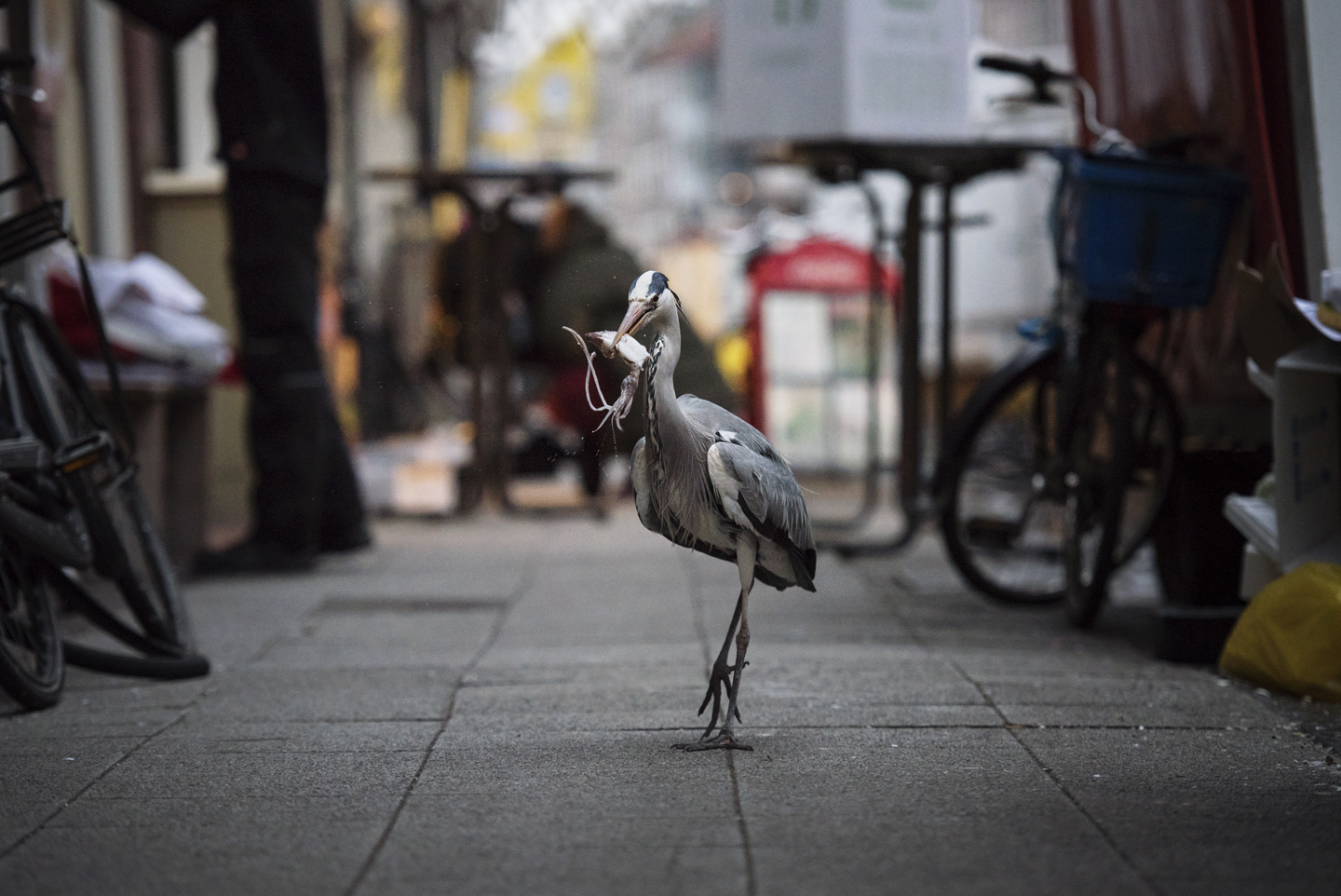
For experienced herons with a taste for kalamari, sometimes that wait is too long
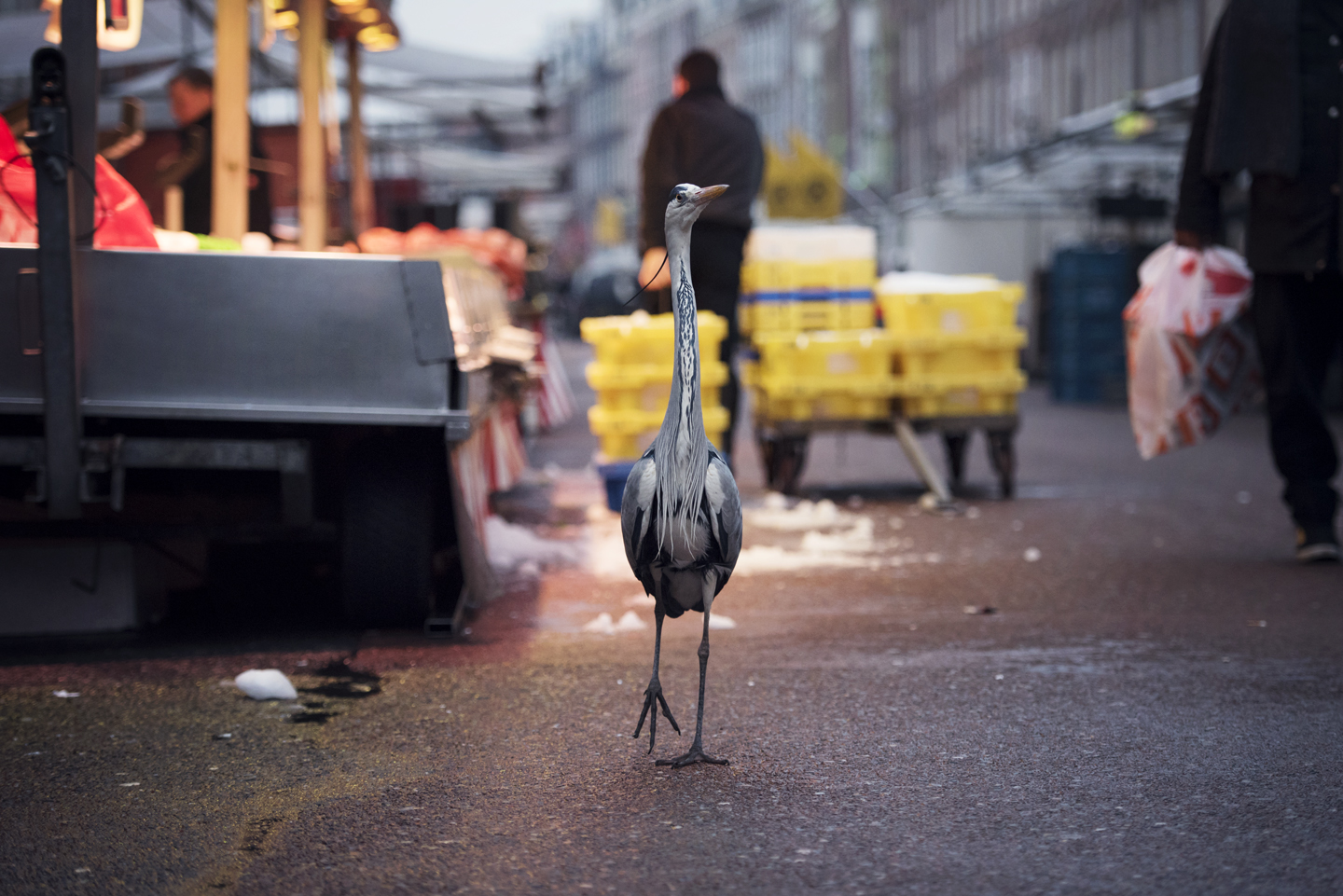
Some will even boldly walk up and down the strip like regular customers, checking the stalls for the tastiest prizes
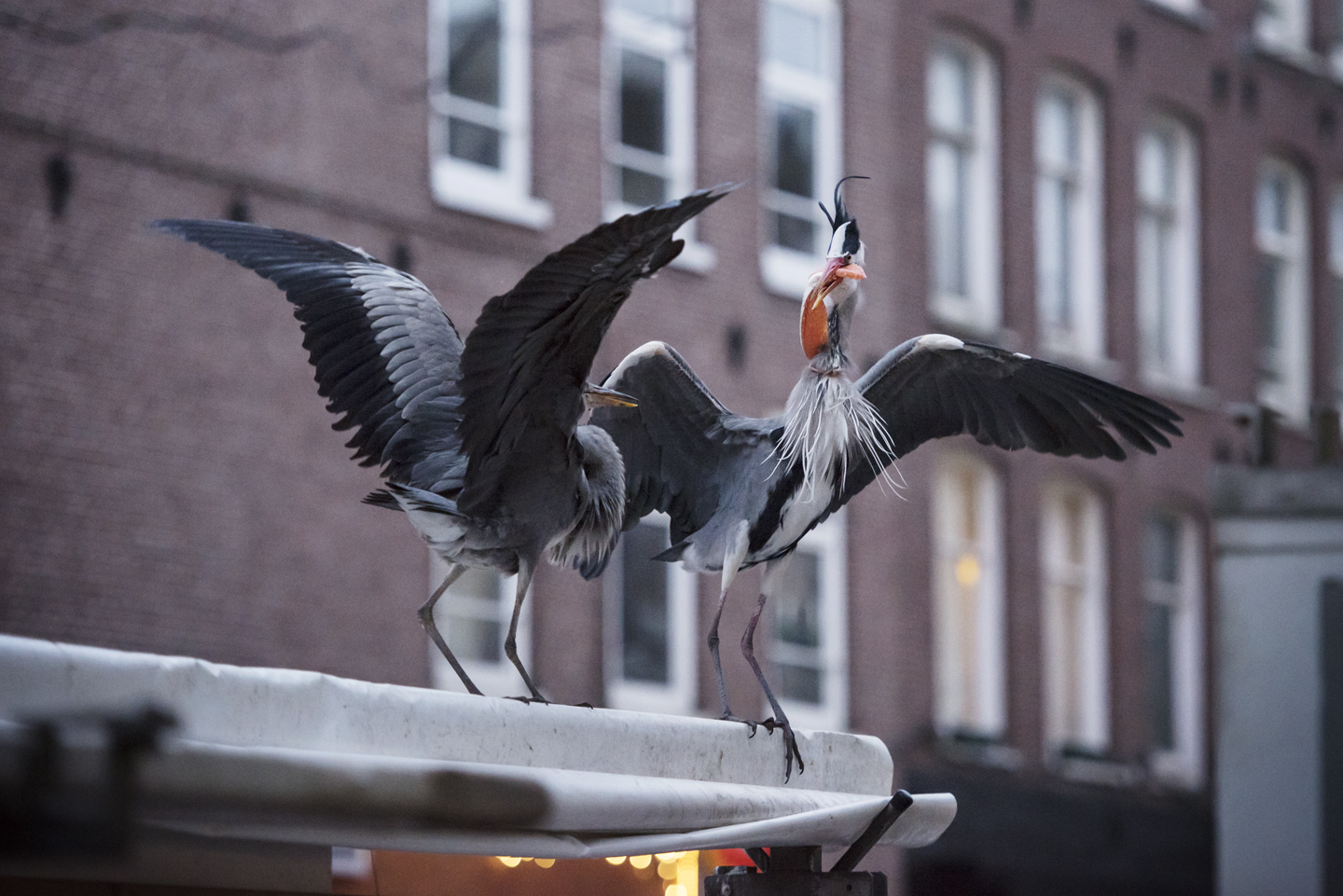
But boldness doesn't always pay off. The first to snatch a piece of salmon will have a fight on their hands
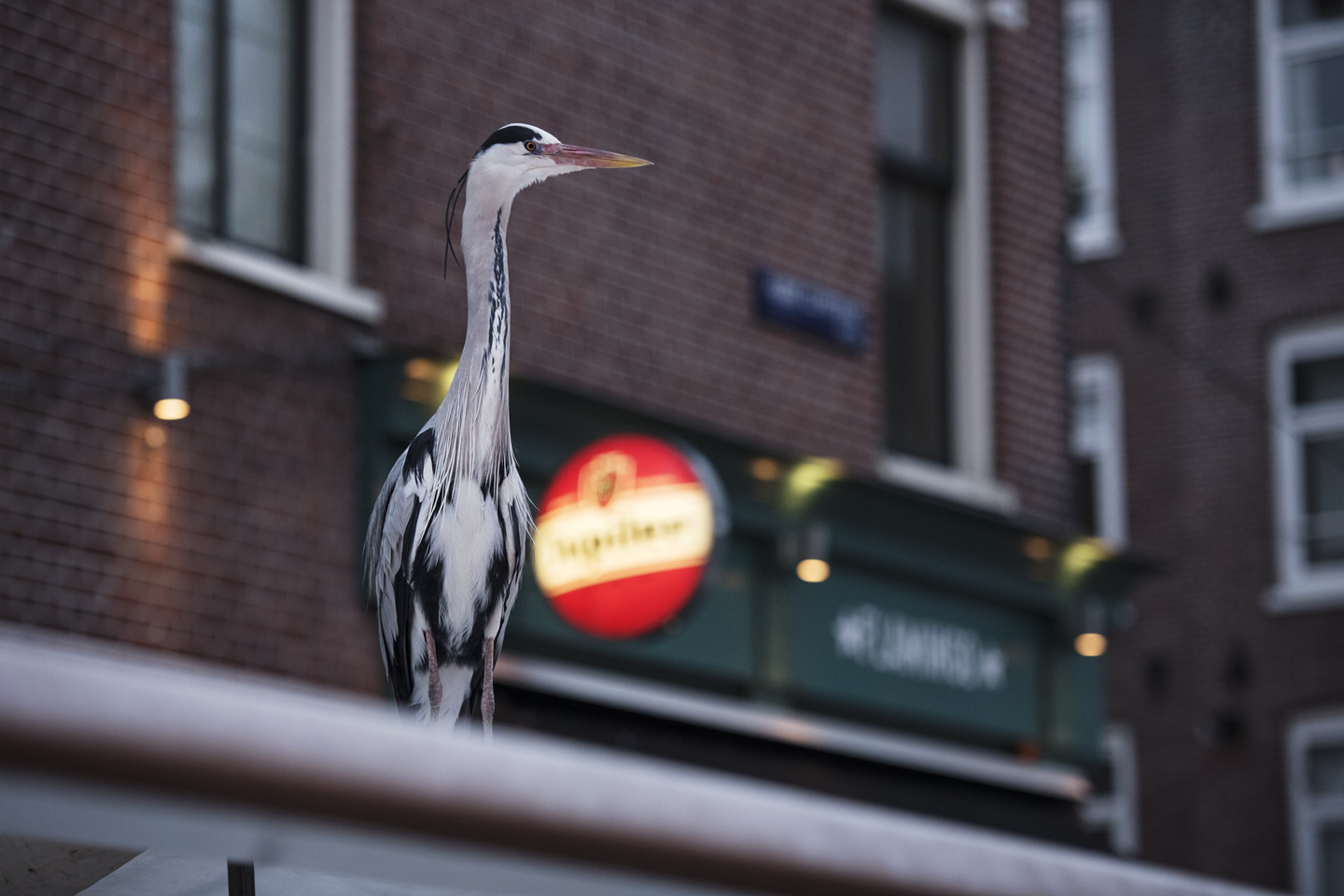
Most birds patiently wait until dusk, when the market closes and the stalls pack up and gather their leftovers
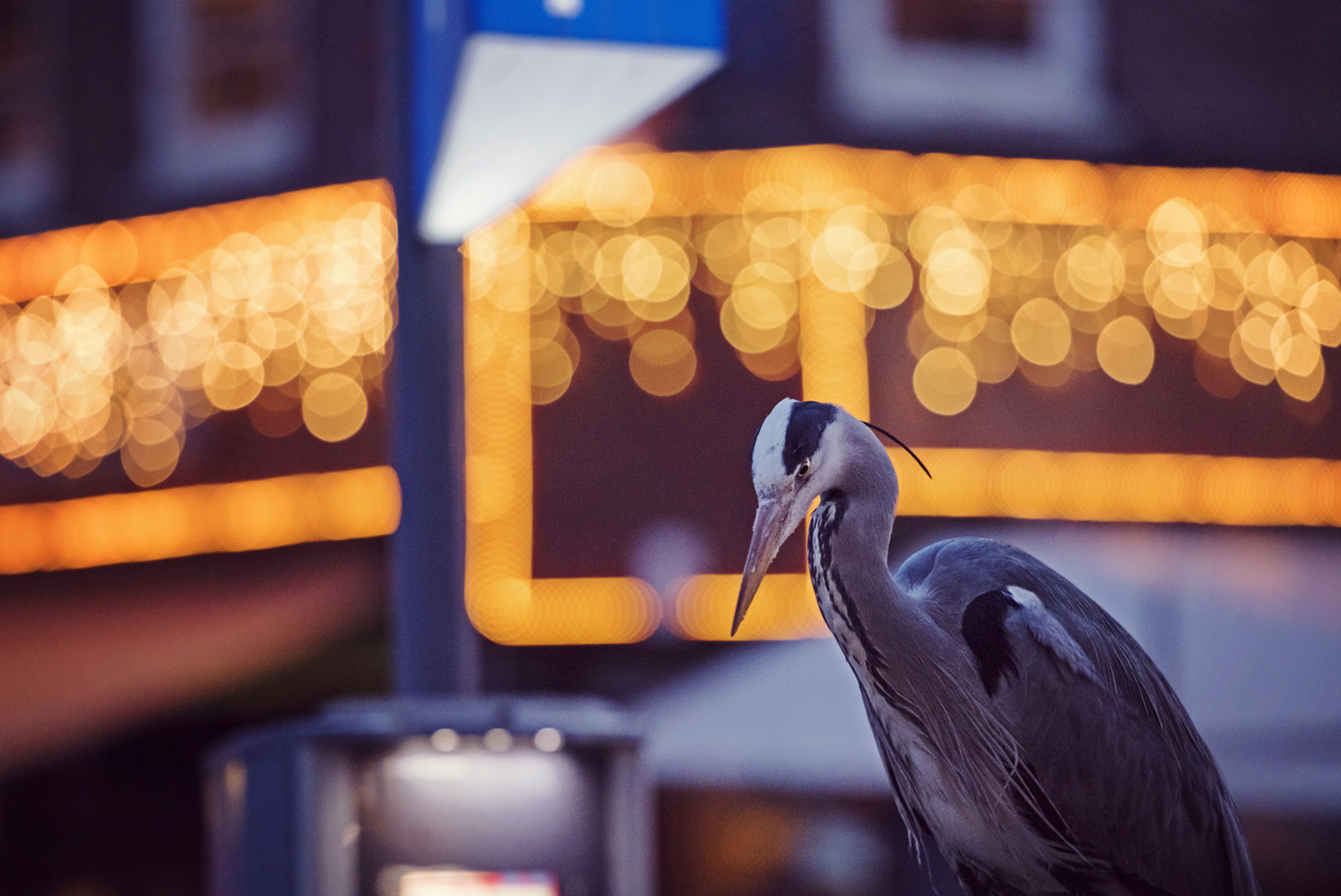
This is the moment they have all been waiting for. They watch intently from their perches as the day's rubbish is piled at either end of the market
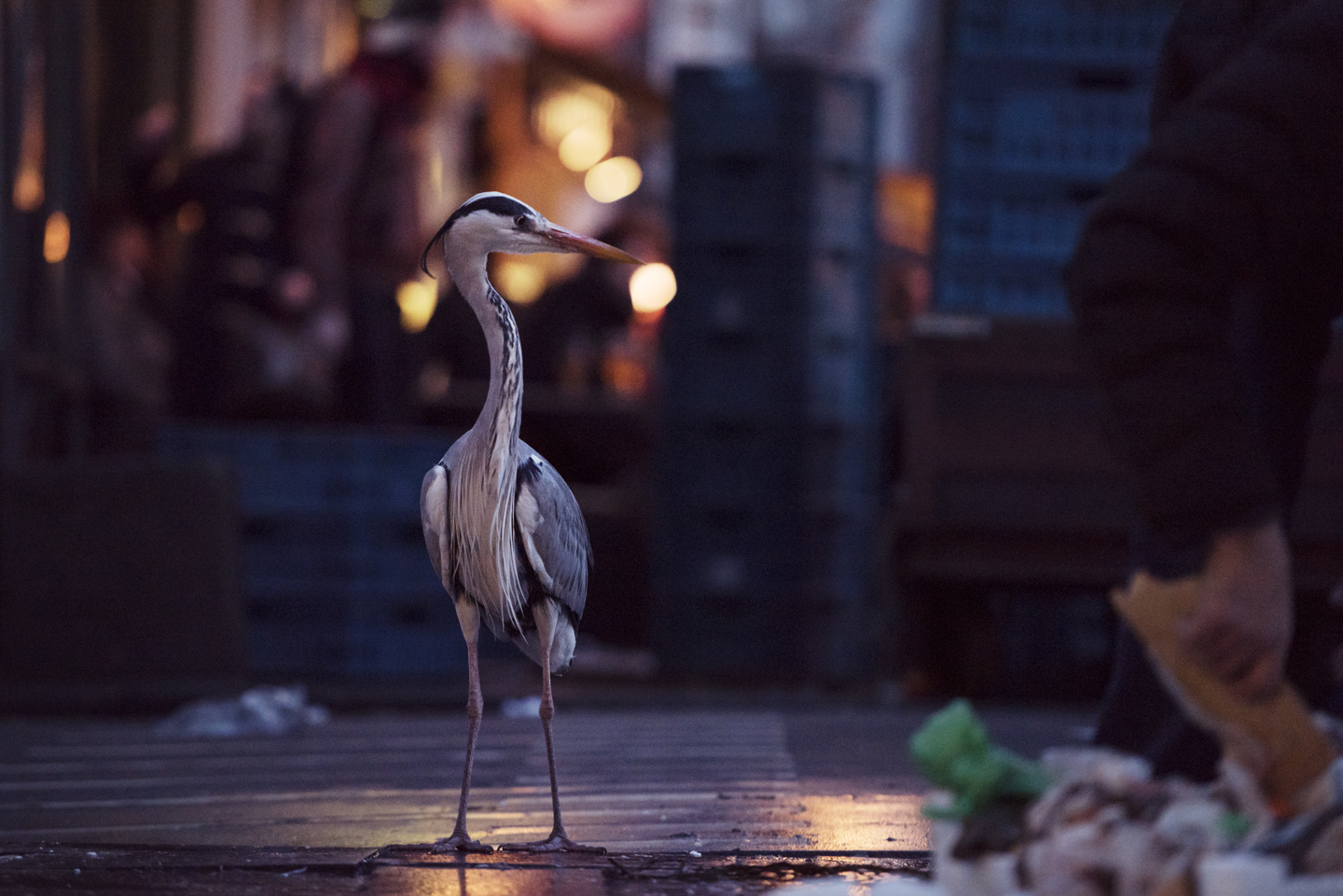
But these piles attract other scavengers - the herons must look on with envy as the city's homeless harvest the richest pickings
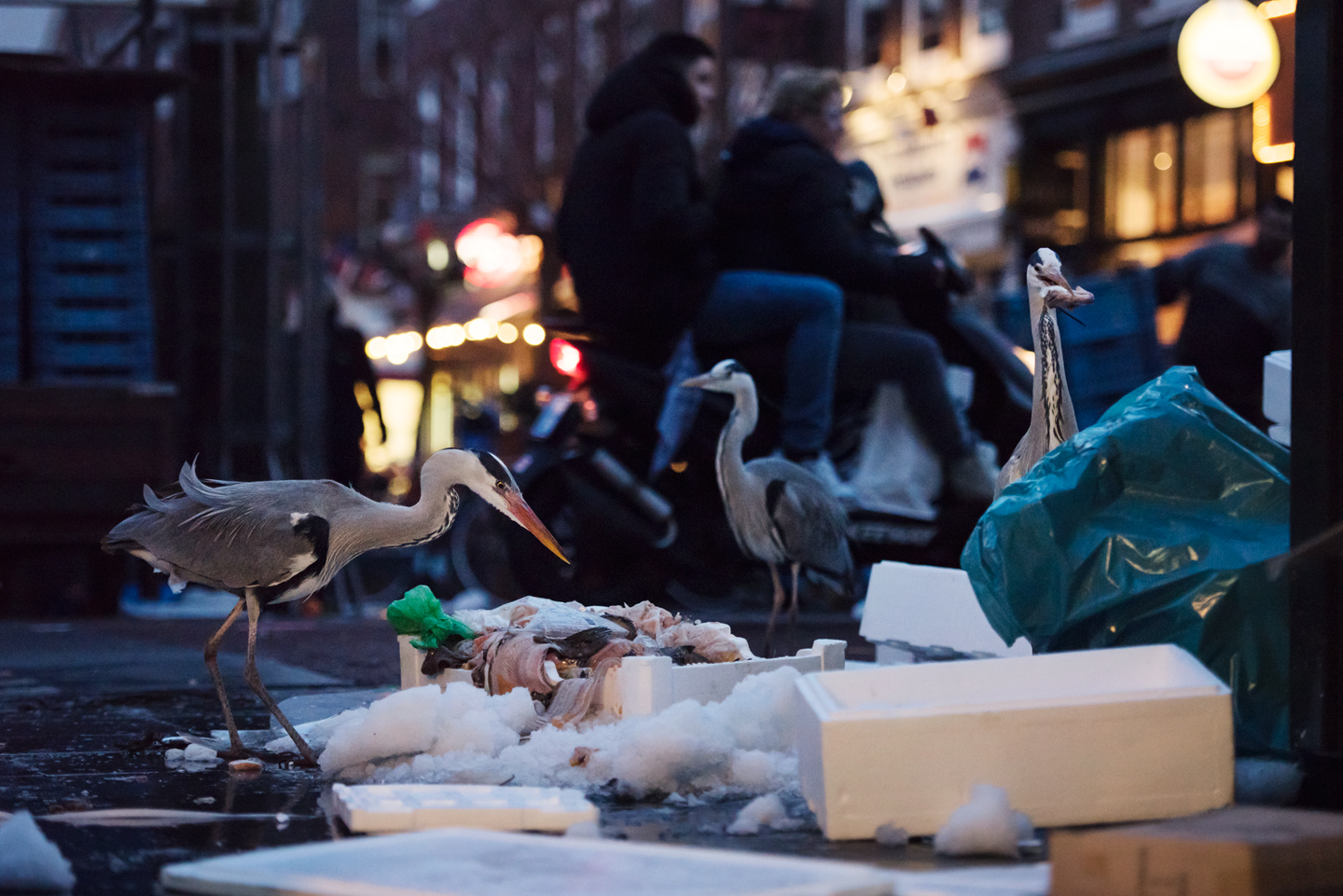
But it's not long before they get their chance to rush in for their own fishy feast
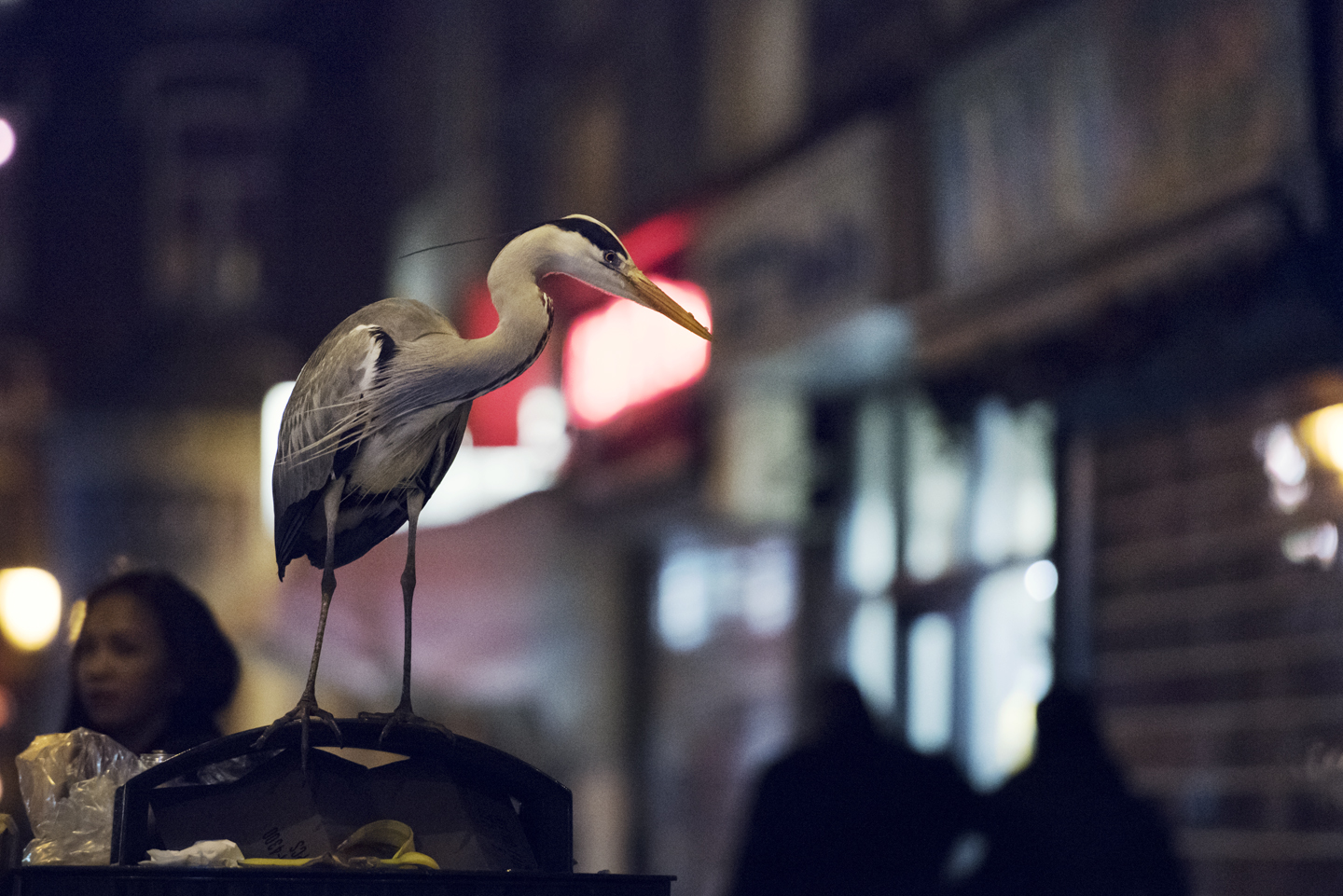
For the next hour or so, the herons take turns to feed - the dominant birds are first while those with lower status wait in the wings
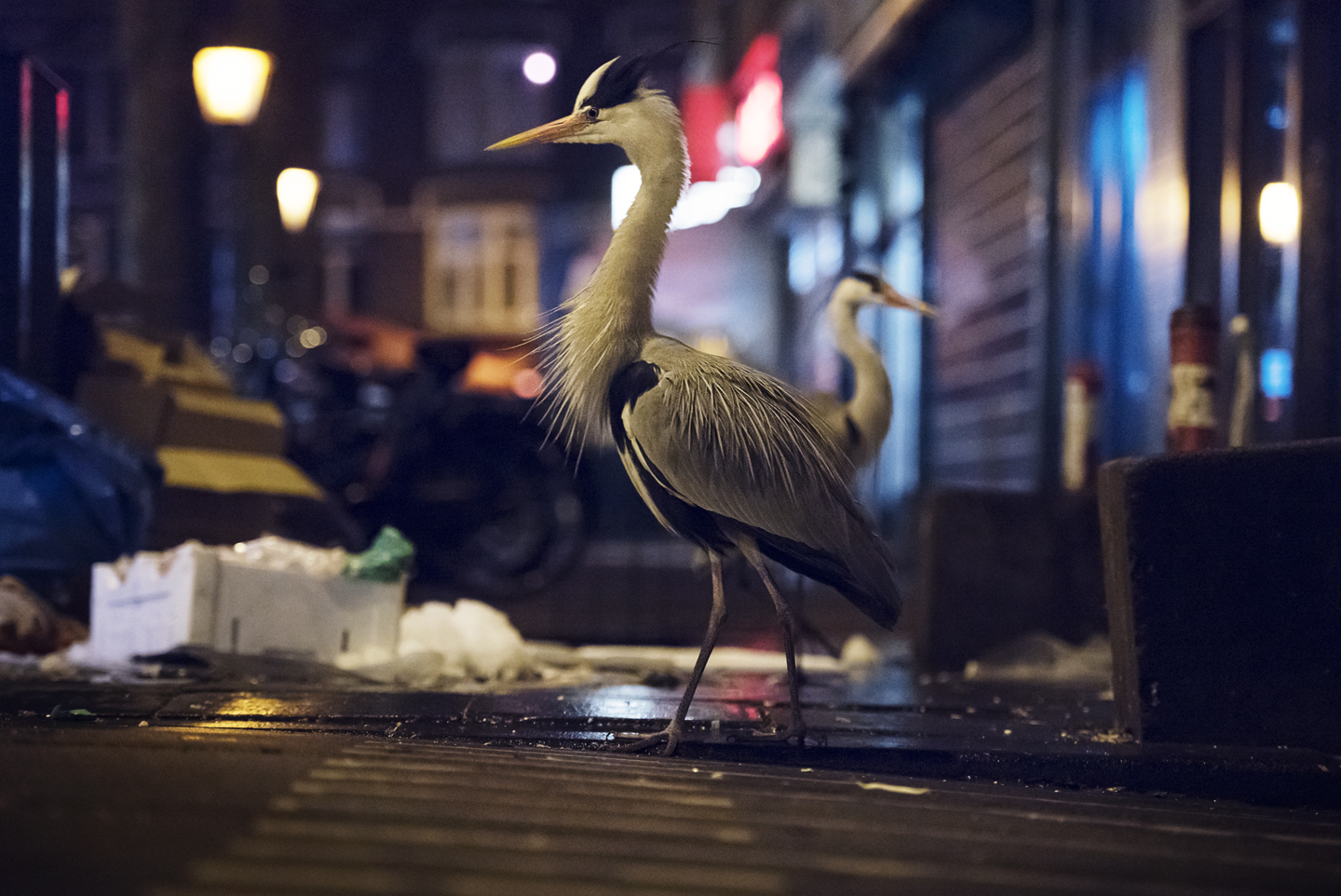
If the pecking order is uncertain, the dominant birds strut their stuff - challenging the others by fluffing their feathers and pacing back and forth
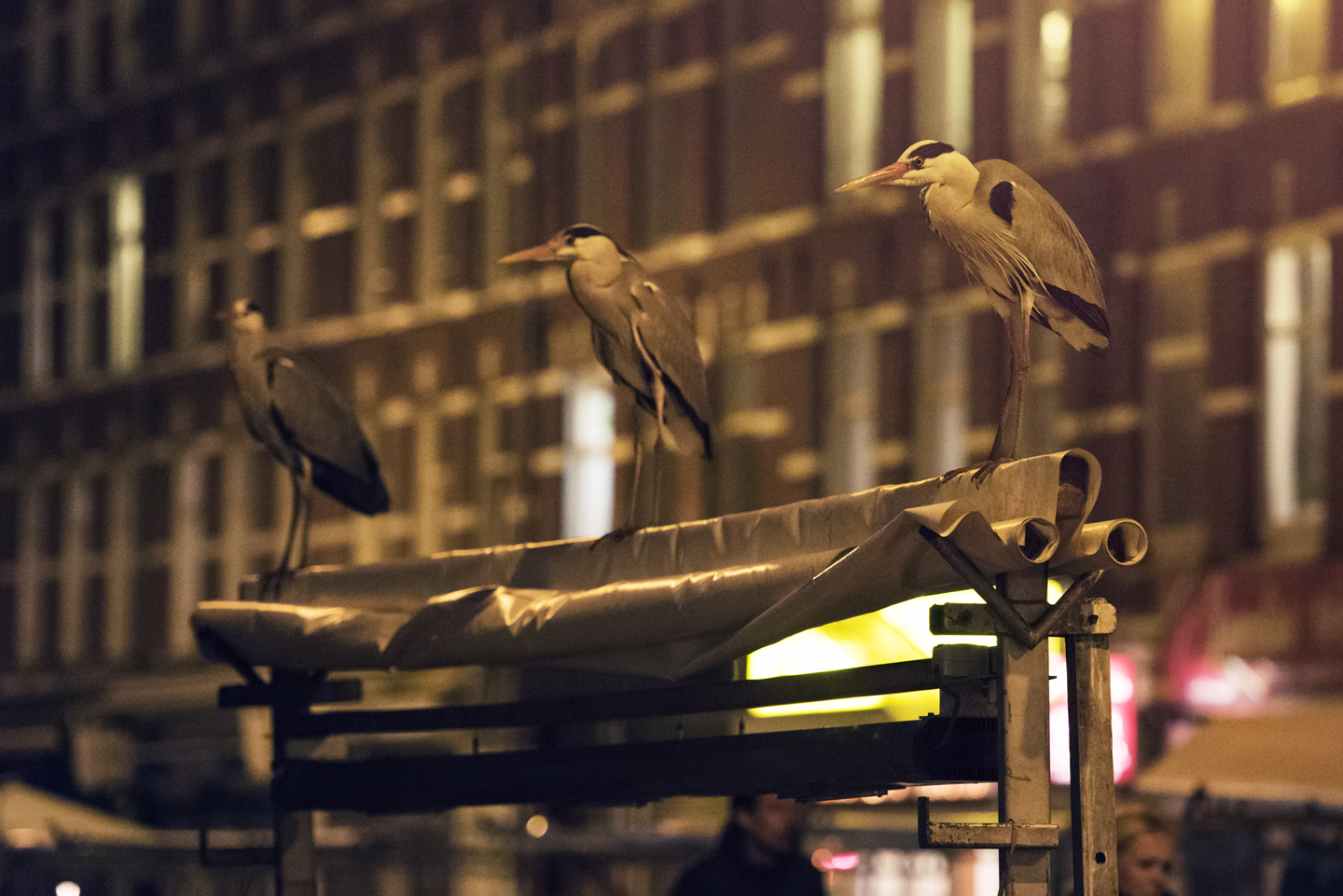
Numbers continue to build throughout the evening, all hoping for their own piece of the action
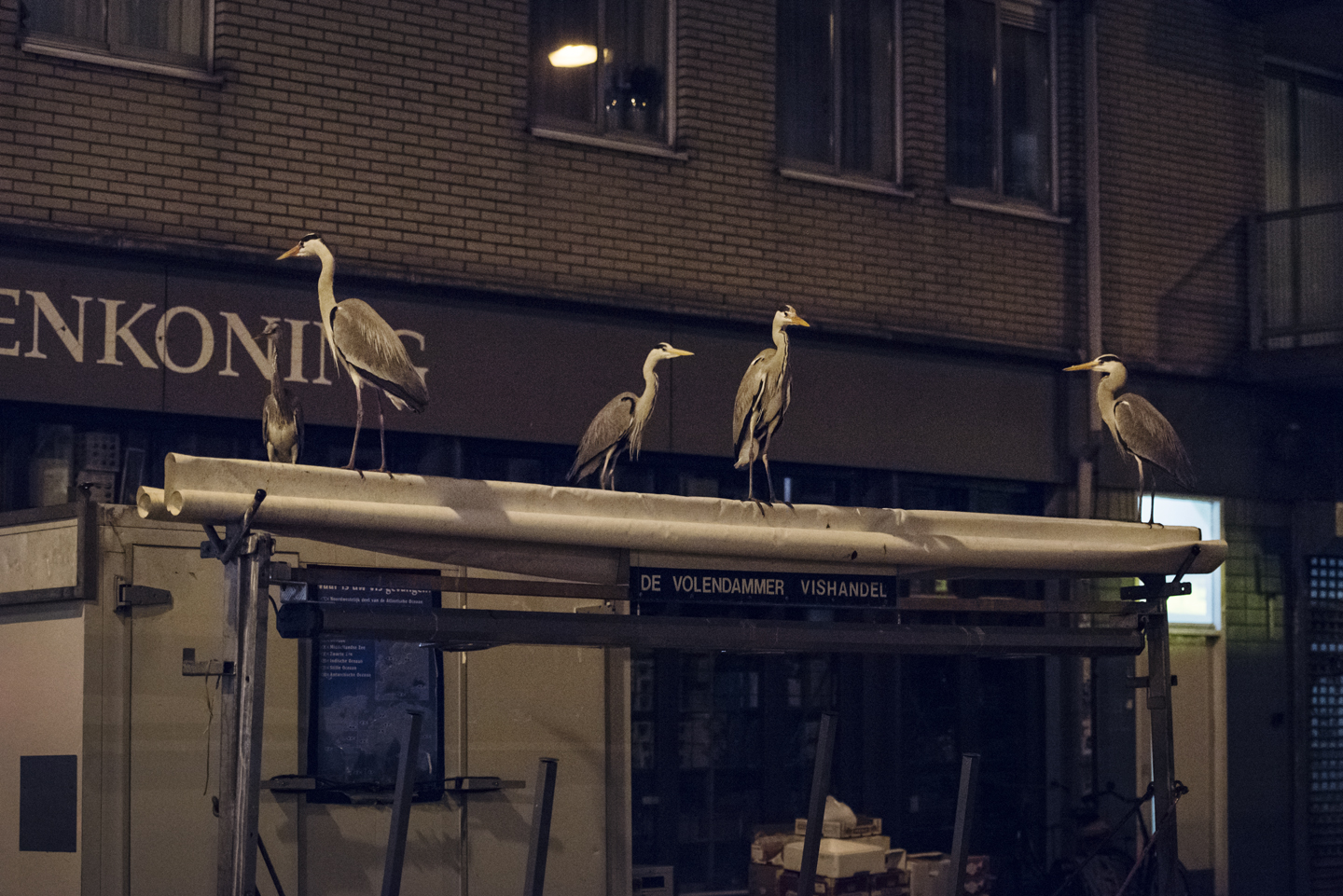
Sometimes fifteen to twenty herons can be seen at one time gathered on the stalls and surrounding rooftops
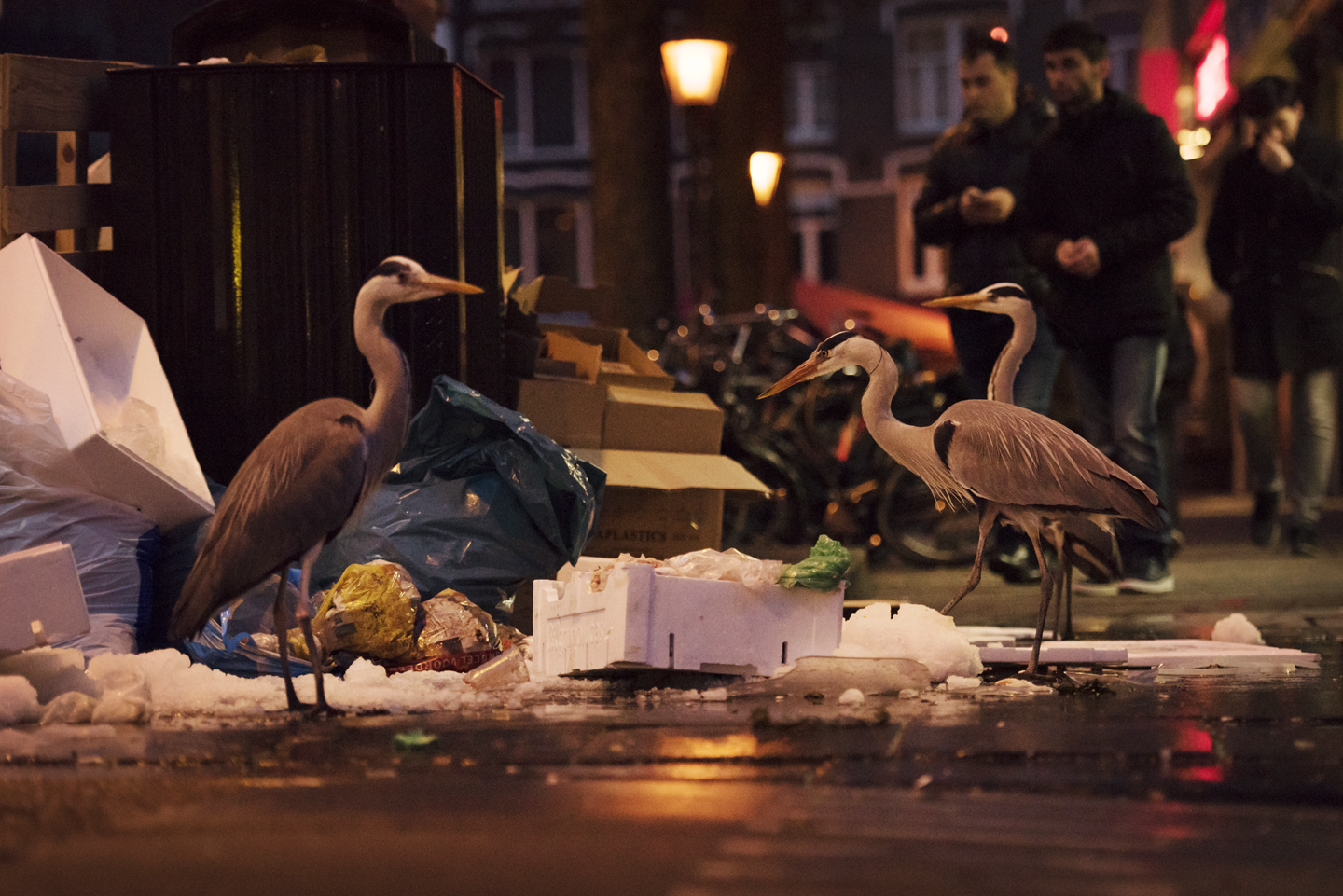
As the night shift begins, the streets, bars and clubs start to fill. Combined with the extra competition for dwindling stocks, the risks soon outweigh the rewards
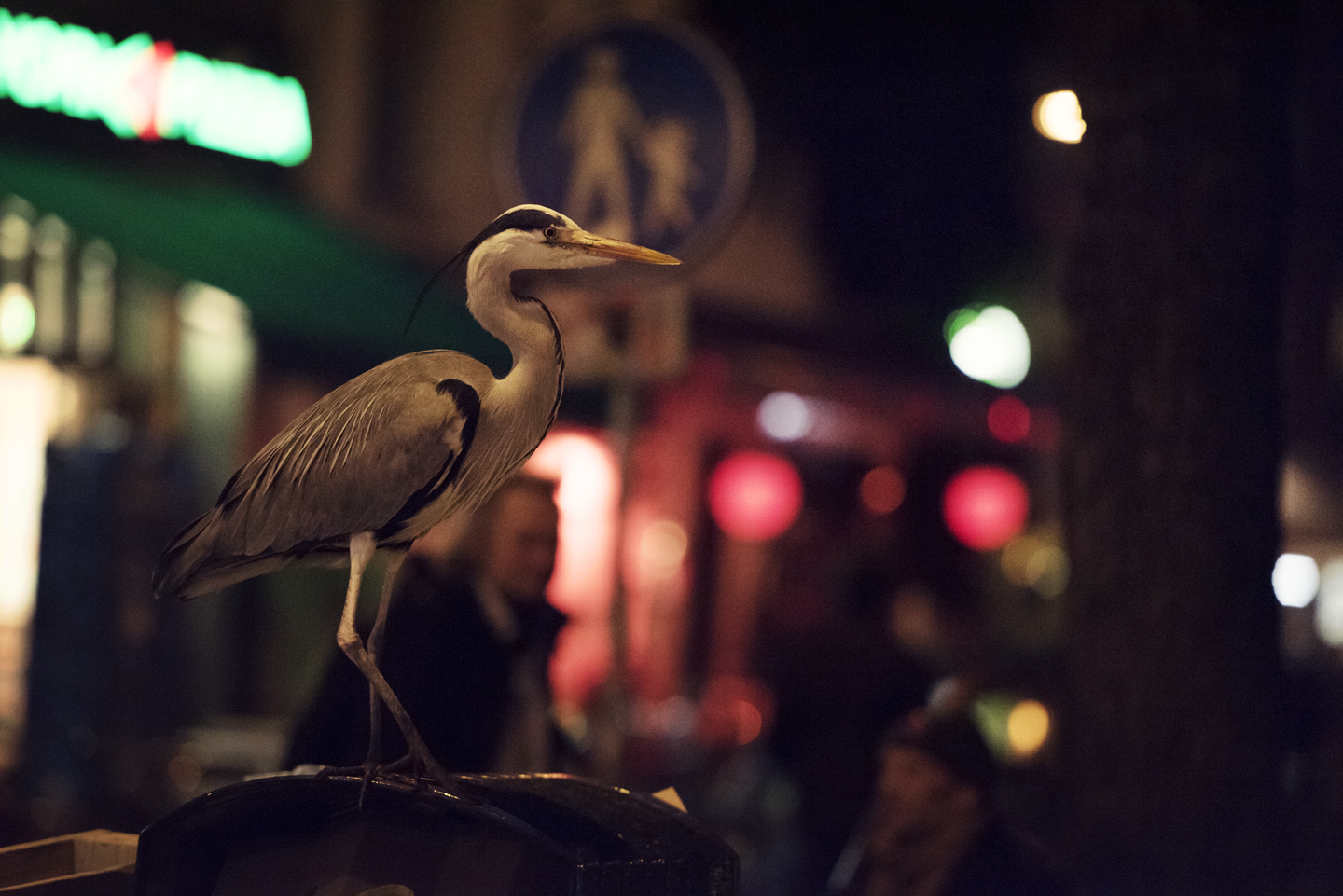
Slowly the herons disperse, heading off into the night to communal roosts around the city. Soon, just a solitary heron is left to pick over the scraps
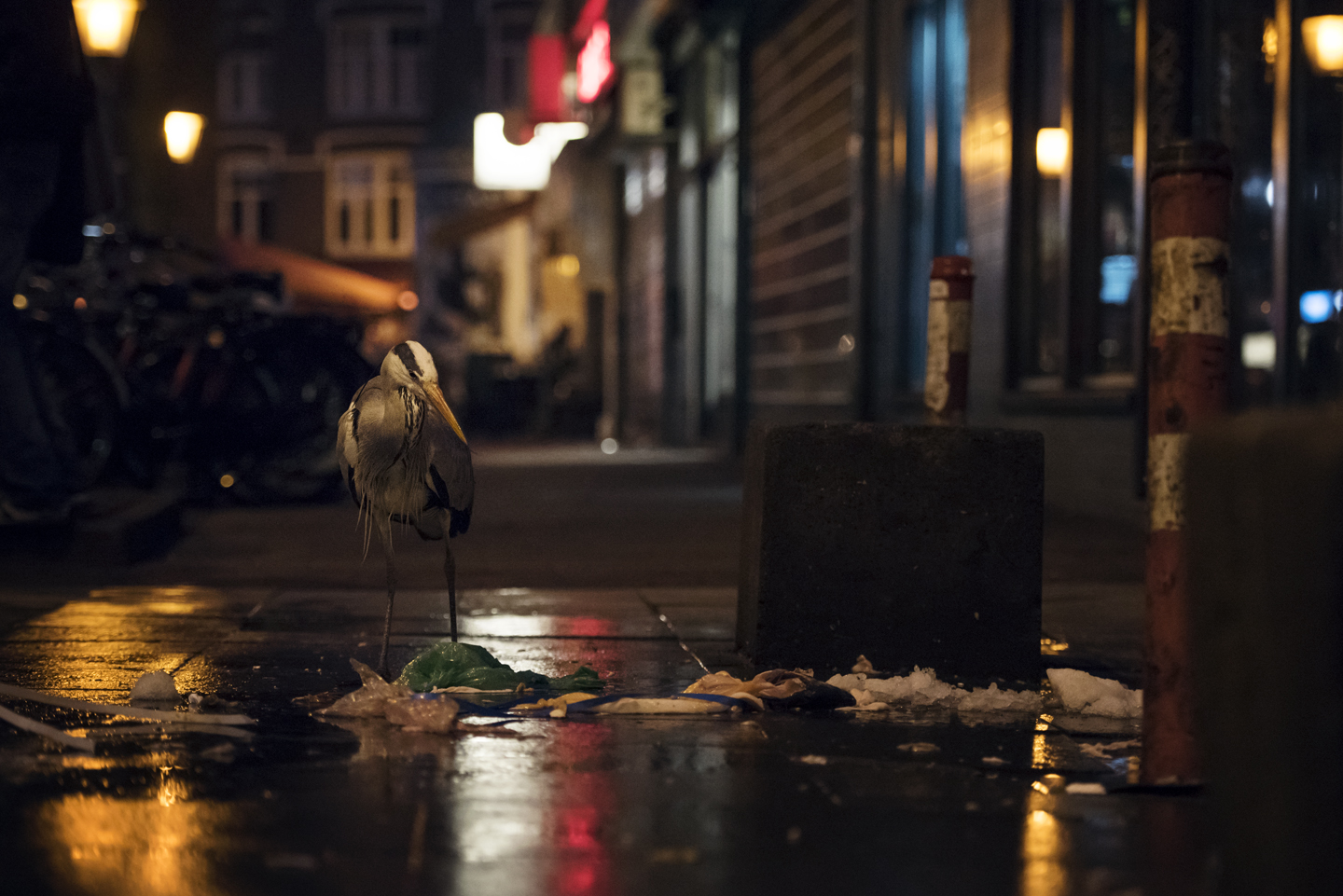
It might seem unusual, but these resourceful wild birds are successfully exploiting our wasteful nature, supplementing their natural diet with a free take-away on us



















With many canals and rivers, Amsterdam is the perfect city for grey herons
They have long been part of the culture, but in certain neighbourhoods, have also become part of the furniture
The herons have adapted so well to city life, that they now know all of the best places to sit in wait for a free meal
On market day afternoons, small groups congregate at the fish stalls. At first they are flighty, but slowly settle and find their confidence
When it's quiet, the boldest will flap down and wait behind the stalls, hoping for a morsel of fish to be washed into the gutter
For experienced herons with a taste for kalamari, sometimes that wait is too long
Some will even boldly walk up and down the strip like regular customers, checking the stalls for the tastiest prizes
But boldness doesn't always pay off. The first to snatch a piece of salmon will have a fight on their hands
Most birds patiently wait until dusk, when the market closes and the stalls pack up and gather their leftovers
This is the moment they have all been waiting for. They watch intently from their perches as the day's rubbish is piled at either end of the market
But these piles attract other scavengers - the herons must look on with envy as the city's homeless harvest the richest pickings
But it's not long before they get their chance to rush in for their own fishy feast
For the next hour or so, the herons take turns to feed - the dominant birds are first while those with lower status wait in the wings
If the pecking order is uncertain, the dominant birds strut their stuff - challenging the others by fluffing their feathers and pacing back and forth
Numbers continue to build throughout the evening, all hoping for their own piece of the action
Sometimes fifteen to twenty herons can be seen at one time gathered on the stalls and surrounding rooftops
As the night shift begins, the streets, bars and clubs start to fill. Combined with the extra competition for dwindling stocks, the risks soon outweigh the rewards
Slowly the herons disperse, heading off into the night to communal roosts around the city. Soon, just a solitary heron is left to pick over the scraps
It might seem unusual, but these resourceful wild birds are successfully exploiting our wasteful nature, supplementing their natural diet with a free take-away on us
